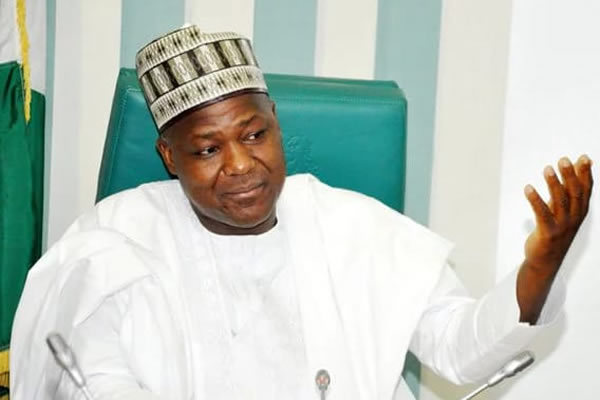- Poverty Biting Harder, Reps Tell FG
Members of the House of Representatives on Tuesday at a plenary session complained that poverty was biting harder in the country and urged the Federal Government to tackle the problem headlong.
They spoke as President Muhammadu Buhari wrote the House on his plan to present the 2018-2020 Medium-Term Expenditure Framework and Fiscal Strategy Paper to the lawmakers.
The President’s communication was read to members by the Speaker, Mr. Yakubu Dogara, thus setting the stage for laying the estimates of the 2018 budget before the National Assembly any time soon by Buhari.
The lawmakers’ worry about poverty came as they passed a motion to mark the World Poverty Day. The motion was sponsored by the Chairman, Committee on Poverty Alleviation, Mr. Muhammad Wudil.
They resolved to “call on the Federal Government to be more effective in implementing various programmes aimed at tackling poverty in the country.”
One member from Osun State, Mrs. Ayo Omidiran, described how poverty was biting most Nigerians, including lawmakers.
She stated, “There is no member here who is not feeling the pangs of poverty. Many of our constituents depend on us for their basic needs; they are feeling the pangs of poverty. People now go to their neighbours’ houses to seek help, which is embarrassing already. In turn, many of them run to us, asking for one favour or another.”
Buhari’s letter on the 2018-2020 MTEF/FSP was read just as the House passed the 2017 Federal Capital Territory statutory budget of N222.3bn for second reading.
The MTEF/FSP is a requirement of the Fiscal Responsibility Act, 2007 and sets out the Federal Government’s revenue and spending plans for 2018-2020.
The letter read partly, “Pursuant to provisions of the Fiscal Responsibility Act, 2007, the preparation towards the submission of the 2018 budget to the National Assembly is progressing well.
“The MTEF and FSP were prepared against the backdrop of a generally adverse global economic uncertainty, as well as fiscal challenges and recovery in domestic economy to ensure that planned spending is set at prudent and sustainable levels and is consistent with government’s overall developmental objectives and inclusive growth.”
It is anticipated that the 2018 national budget may be slightly higher than that of 2017.
The budget for the current year is N7.441tn and was signed into law on June 12 by Prof. Yemi Osinbajo, then as the acting President.
It was higher than the 2016 budget of N6.06tn by over 20 per cent. The MTEF will set the figures for 2018 and the oil and non-oil revenue projections for 2019 and 2020.
It will also set the crude oil benchmark for 2018-2020 and the expected oil production output. The oil benchmark for the 2017 budget was originally set at $38 per barrel, but it was later increased to $44 by the National Assembly. The dollar/naira exchange rate was set at N305/USD1.
The House Majority Leader, Mr. Femi Gbajabiamila, led the debate for the second reading of the FCT’s budget.
He said N52.5bn went for personnel spending, while N41.2bn was earmarked for overhead costs.
The lion’s share of N128.bn was provided for capital expenditure, particularly for completion of ongoing projects and satellite towns’ development in the FCT.
Although, some members applauded the budget, they called for more attention to be given to the satellite towns. For instance, the Chairman, House Committee on Ethics/Privileges, Mr. Nicholas Assai, observed that most of the infrastructure in the satellite towns had failed.
He also said some of the towns had no potable water and electricity supply, adding, “Let us give the people in these satellite towns a sense of belonging. Places like Jikwoyi, Kubwa, Dutse; there are no good roads there. Let us endeavour to cater for these people.”

 Naira4 weeks ago
Naira4 weeks ago
 News3 weeks ago
News3 weeks ago
 Education4 weeks ago
Education4 weeks ago
 Social Media4 weeks ago
Social Media4 weeks ago
 Economy4 weeks ago
Economy4 weeks ago
 Investment4 weeks ago
Investment4 weeks ago
 Dividends4 weeks ago
Dividends4 weeks ago
 Business3 weeks ago
Business3 weeks ago





























